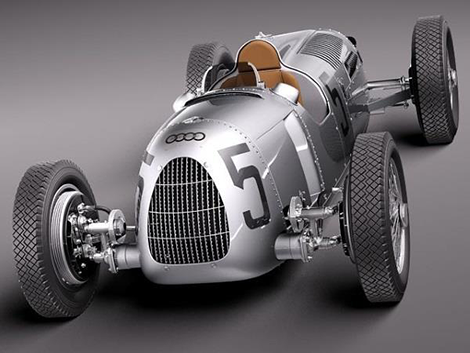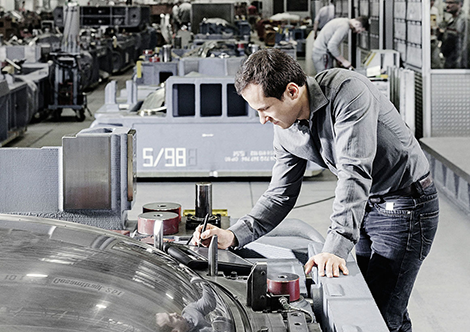
Audi’s 3D printed 1936 Auto Union Type C race car replica was an exercise in its investigation of 3D printing technology
Audi has partnered with EOS’ consulting division Additive Minds to support the automotive manufacturer in the ‘holistic implementation of this industrial 3D printing technology’ and creation of a 3D printing centre in Ingolstadt, Germany.
The industrial use of 3D printing is first being applied to equipment and prototype building at Audi, as well as its motor sports division, which already benefits from the technology.
“The aim is to not only supply Audi with the right additive systems and processes but to also support them during applications development, when building up internal AM knowledge and training their engineers to become in-house AM experts,” said Güngör Kara, director of EOS global application and consulting.

Under the new agreement, Audi will receive help and guidance from EOS’ consulting division Additive Minds
On the part of Audi, the sectors of tool making and the casting technical center for planning have a leading position, from which head of toolmaking Jörg Spindler, commented: “A close cooperation with AM solution providers such as EOS, who can support innovation in technology development, is essential for these aims.
“With this technology we are able to integrate internal structures and functions in tools that we have not been able to create so far with conventional manufacturing methods. Especially with components in small batches, we can now produce components using lightweight construction, quickly and economically based on this technology.”
Audi is also focusing on the production of inserts for die casting molds and hot working segments.
The company can positively influence the process of series production by conformal cooling, producing parts and vehicle components more cost-effectively.
This is made possible by using highly complex, additively manufactured cooling channels, which are tailored to the component and could not be implemented conventionally before.
Specifically, the optimised cooling performance leads to a reduction of the cycle time by 20 per cent which has a positive effect on the energy consumption and cost efficiency of the components at the same time.
Previously Audi has exhibited its toolmaking and mold making ability with 3D printing as it looks to advance its ideas of the smart factory.
“In the future, we will connect equipment, machinery and people even more closely with each other, and will make use of new methods to develop even more flexible and precise tools,” stated Michael Breme, head of production and plant planning.






